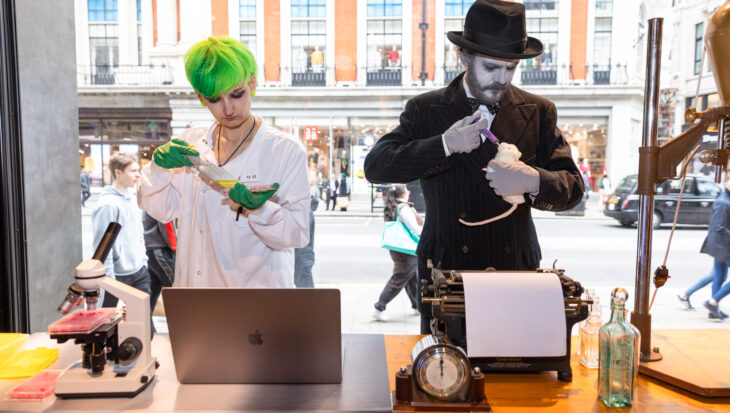The Alzheimer’s Society has been condemned for co-funding a series of ‘hopelessly outdated’ experiments on genetically modified (GM) mice. The experiments, which have been exposed by Animal Aid, were conducted by researchers from Ulster and Lancaster universities, and used mice who had been genetically altered to suffer from some of the symptoms of Alzheimer’s.
Animal Aid maintains that the experiments are based on an increasingly discredited theory about how the disease develops – one that offers little hope of delivering the progress that Alzheimer’s patients so urgently need. In addition, the scientific community is becoming increasingly focused on the need to prevent the development of the disease, since around half of all cases are thought to be due to modifiable risk factors.
A research paper published in 2013 reveals how 12 of the mice were subjected to eight weeks of injections into their abdomens with a drug which is currently used to treat diabetes in humans. Prior to the start of the experiments, the mice were kept in single cages. This – argues Animal Aid – would have denied these social animals their most basic behavioural needs.
The animals then endured a series of stressful behavioural tests, including the infamous Morris water maze. Recognised as causing unavoidable stress, the test forces animals to swim around in a pool of water looking for a hidden platform. When the tests ended, the mice were anaesthetised and had holes drilled into their skulls so that electrodes could be inserted. They were then killed using a gruesome procedure designed to drain their blood but preserve their tissues. Their brains were removed for examination.
Animal Aid is also unconvinced by claims as to the scientific value of the experiments, arguing that genetically modifying mice can produce only a crude approximation of Alzheimer’s. The campaigners also point out that the drug’s efficacy in treating Alzheimer’s could have been investigated directly in human patients, given that its safety has already been established in the course of its use as a treatment for diabetes.
Says Animal Aid Director Andrew Tyler:
‘These hopelessly outdated experiments fail to provide results that can be usefully translated to humans. Decades of research into Alzheimer’s have produced numerous drugs that alleviated symptoms induced in animals in the laboratory, but went on to fail when tested in clinical trials. Out of 244 potential Alzheimer’s treatments tested between 2002-2012, more than 99 per cent failed.
‘These dismal failures in the fight against Alzheimer’s mean that a modern, scientifically sound approach is urgently needed. The way forward lies in the use of non-animal methods, such as genetic sequencing, high-resolution scanning and studies on human cells and tissues. Charities like the Alzheimer’s Society, which depend on donations from the public, have a duty to fund research that uses only productive, human-relevant techniques.’
Editors’ Notes

